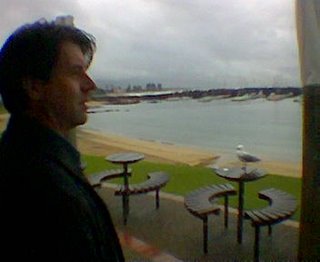Deception

From a circa 1994 army field manual reagrding deception. One could take the long bow and see how it fits into the "was there a plane or no plane that hit the Pentagon" argument.
"Deception Concepts
Deception is the deliberate misrepresentation of reality to gain a competitive advantage. Political deception is achieved through diplomatic or international relations; military deception, through the acts of military forces.
The offensive is the better position from which to succeed at deception. The initiators of action define the nature of the encounter and thereby have the greater degree of control over it. A major advantage the initiative confers for successful deception is time. Although the target audience may ultimately choose not to act upon the deceptive theme, the additional time it spends evaluating deceptive scenarios or searching for further information benefits the initiator.
Deception (military or political) includes manipulating, distorting, withholding, or falsifying evidence available to an opponent. History has shown that it is far easier to deceive by reinforcing an opponent’s existing preconceptions than it is to persuade him to change his mind. PSYOP personnel should encourage the opponent that the most likely way of achieving the objective will in fact be adopted (thereby diverting his attention from an alternative plan).
Given two options, one of which reinforces our existing point of view, people are more likely to believe what they already suspect. Psychologically, they are gratified by evidence that confirms their preconceptions. People generally attach undue importance to evidence supporting their point of view and reject that which does not. PSYOP personnel should avoid deception that requires persuading a target audience of something it is not already predisposed to believe. In World War II, the Allies exploited Hitler’s (the target audience with the power) conviction that because of the problems of air cover and the need for a major port, any Allied invasion of Europe would occur at Calais.
Deception Types
Deception may be strategic, operational, or tactical. Deception, regardless of type, may be active (designed for the target audience to discover) or passive (designed to withhold selected items from the target audience for operations security [OPSEC]).
Strategic deception refers to instances during war or peace when countries attempt to mask their diplomatic and military strategy either by confusing or misleading their opponents. This level of deception involves a nation’s highest decision makers using diplomacy, economics, intelligence, and virtually every conceivable dimension of modem conflict to mislead or confuse opponents.
Strategic deception may extend political deception by using military activities. It may also be large-scale, long-term projections of false intelligence to aid theater objectives. Although the objectives may be military, strategic deception supports national policies and plans and may be supported by nonmilitary agencies."
Joe Quinn makes a few observations about the truthout 9/11 movement. Thing is, no-one seems to be asking what was hit inside the Pentagon. Turns out to be "four special, highly classified electronically secure areas" which belonged to Naval Intelligence command.
Initial reports of what were originally hit are long buried. In fact the above link seems to be the only source and is on google cache.


0 Comments:
Post a Comment
<< Home